“It is the fear of what tomorrow may bring that makes the tortoise carry his house along with him wherever he goes.”
***
Dover, England.
Days piled on days, months on months, the world continued to turn without waiting on anyone.
It had been seventy-one years since the famous revolution at Animal Farm. Since then that pig, Napoleon, had bankrupted the farm and sent the heartbroken animals off the land with the gifts of empty slogans.
Yes, the seductive dream of Animalism which enthralled the beasts of England had died a wretched death, but it certainly wasn’t forgotten.
The lingering wisp of the dream was what prompted Flint, a carthorse of advanced years, and his young son, Boxer Jr., to leave home on a bright summer afternoon. The clip-clop beat of their shoes on worn cobblestones as they made their way to the Strait of Dover Wharf matched Flint’s racing pulse. He was finally going to fulfill a promise made.
Flint glanced at his sullen son. At almost sixteen hands high, a white strip down his prominent nose, Boxer Jr. bore a close resemblance to his famous relative.
Chin down, Beats headphones wedged tight against his ears, B.J., as he insisted on being called, swayed to blaring music.
Flint couldn’t understand why these young ones seemed determined to drown out the world. It would be a miracle if B.J. didn’t become deaf before he reached his prime.
As they turned into the road leading up to the wharf, the wooden crate of beer bottles he had placed in B.J.’s cart slid to the right.
“Easy now,” Flint said after he’d pulled off B.J’s headphones. “These bottles have waited a long time for this day.”
B.J. scowled as he slowed his pace. “They’re just dusty old things.”
Flint fought his emotions as he looked away. According to family lore, his Great-Grandpa Boxer must have sensed that the end was near. In preparation, he’d surprised everyone by learning how to write. The twenty-four notes he’d written were secured in empty beer bottles, and his oldest son was given the directive to throw them into the ocean. However, crushed by the manner of their patriarch’s demise, the family had just passed on the wooden crate.
When they arrived at the edge of the wharf, Flint drew in the salty ocean air before he lifted the wooden crate off the cart. He placed it down and spoke to his son. “You know why they’re important.”
B.J shrugged. “From what you said, the revolution thing didn’t work out for us. So, who are we to tell anyone what to do?”
It was the same question he’d asked his father when the crate was handed to him. Flint repeated the words he’d been told. “Perhaps, they’ll get it right.”
B.J’s headphones were back on as Flint took each bottle and flung it into the water. When he was done, he stood next to B.J.
“Dad?”
“Yes, son?”
B.J. had a pained expression. “We’re in public,” he said.
Flint swallowed a lump as he removed the hoof he’d placed on his son’s shoulder. Head held high, he watched as the bobbing green bottles floated away.
*
Three months later. Naija Farms, West Africa.
Face hidden behind a surgical mask, Alagba’s bald head glistened with sweat as he stood by the bank and surveyed the winding river which ran behind his forever home. When he and his late wife, Yanibo, picked the spot, they had not envisaged this type of disaster.
Bile rose in Alagba’s throat when the wind blew the stench towards him. He steadied himself by gripping the handles of his tarpaulin-lined wheel barrow.
The change, which came to their waters, had started with a tinge of pink. At first, they’d blamed the discoloration on some overzealous foreign algae. But as the months passed, the color deepened to a crimson red, and it was clear something of great concern was happening up North.
When a prizewinning cow fell ill because of the contaminated water, hired rickety tankers made daily trips to the farm. To ensure a steady water supply, several wells were also dug. On commissioning day, their taciturn farmer, Presido, congratulated himself on a job well done. He also told them dealing with the crisis up the river wasn’t their responsibility.
Because Alagba had not attained the status of a two-hundred-year-old tortoise by putting himself in front of the authorities’ hungry sword, he’d swallowed his misgivings and lined up at a well.
It wasn’t long before everything changed again. Corpses and carcasses came with the debris, and it became clear that whatever was taking these lives was no respecter of man or animal.
After giving the matter much thought, Alagba decided he would remove the remains from the river and bury them in an uncultivated part of the once lush land. They had belonged to someone, and even the dead deserved dignity.
Alagba glanced at the sun. If he moved a little faster, he would be able to bury these ones before the heat made it difficult to move.
Task completed, he came back to the riverbank to pick up the bag of debris when he noticed something green bobbing in the water. Curious, he moved closer as the sun rays reflected colors off the glass. After he’d fished out the item, he saw that it was a beer bottle with an unknown label.
Not only was the bottle sealed, it held a piece of paper. Alagba’s forehead creased as he turned the bottle around. He’d heard of these types of messages, but he had never seen one. Who had sent the message and to whom was it addressed?
After he’d cleaned the bottle with a handful of grass, he decided to take it home. He would decide on what to do after a wash and a meal.
“I knew I would find you here.”
In the middle of packing his tools, Alagba heard the familiar wheezing before he heard his cousin Ogbo Iwiri’s voice. “Someone has to do the work,” Alagba said in a wry tone.
“It doesn’t have to be you.”
His work at the river was a recurring bone of contention between them. A smile tugged at the sides of Alagba’s lips. “We don’t see masquerades in the afternoon. I hope all is well?”
Unable to speak because of a coughing attack, the leatherback turtle nodded. Alagba swung his raffia bag around his neck. “I’m glad.”
During their walk home, Alagba noted that Ogbo Iwiri still struggled to take deep breaths. His cousin’s clan had moved northwest after a series of irresponsible oil company spills destroyed their ancestral home in the Niger Delta creeks. Fumes from the crude oil gave Ogbo Iwiri emphysema while the dispersants pumped into the water had left him and others with third-degree burn scars.
By the time Alagba took his bath and brought out a gourd of week-old palm wine, Ogbo Iwiri was fast asleep under the Odan tree. He would have asked his cousin to come inside but Ogbo Iwiri’s six-foot figure couldn’t squeeze into his hut. He held on to Ogbo Iwiri’s shoulder and shook him awake. “Here’s something to quench your thirst.”
After giving him a grateful look, Ogbo Iwiri emptied the container. “My throat was really parched,” Ogbo Iwiri said as he wiped his lips. Alagba chuckled. “Mr. Drinkard. Your throat is always parched. What will you eat?”
“This is a short visit. I just came to tell you that we’re leaving.”
Given the situation of things, the news wasn’t as a complete surprise. “Where are you going?”
Ogbo Iwiri sighed. “Wherever we can find fresh water.”
Fresh water had become liquid gold. Alagba visualized fierce clashes between Ogbo Iwiri’s clan and local communities. No one would win.
Sadness doubled the weight of Alagba’s shell as he listened to Ogbo Iwiri’s raspy breathing. He didn’t have to be a medicine man to see that his cousin was fading. It would be a miracle from the creator if Ogbo Iwiri made it to the next planting season. “I will miss you,” he croaked in a voice which sounded nothing like his own.
In spite of Ogbo Iwiri’s swollen eyelids, Alagba saw his tears. “And I, you. Out of all my mother’s people, you have been the closest.” Alagba hung his head. Saying goodbye was the part of living he hated the most.
The sun had cooled by the time Ogbo Iwiri insisted on leaving. “Don’t forget to tell your children the directions to my home,” Alagba repeated.
Ogbo Iwiri hoisted the bag of gifts onto his shoulder. “I will.” When they faced each other, he lifted his flipper. “Blessings on you, Old One.”
As his cousin’s figure became a small dot in the distance, lines from a Yoruba dirge looped through Alagba’s mind.
O di gbere, o di arinako, o d’oju ala. Ajanaku sun bi oke. Erin nla wo ko le dide.
*
The next day, Alagba woke up to uneasy quietness. It was one of those mornings when he wished Yanibo had not joined their ancestors. She would have known what to say, how to comfort him. He closed his eyes as he tried to picture her face. As time passed, the edges of the image grew blurry, and he wondered if one day there would be nothing left.
Alagba rolled off the bed and landed on his back. Grateful for the sloped, rough surface of his hut, he flipped over and his foot struck the bag he’d abandoned on the floor. The feel of glass through the raffia reeds reminded him of the beer bottle. He pulled out the bottle and used a knife to break the wax seal. There was nothing special about the piece of paper, it had no letterhead, no embossing. He reached for the pair of glasses kept on a nearby stool, sat on the bed, and began to read.
Dear Comrades,
Greetings. My message to you is brief.
For many years I was proud to chant the rousing slogan, “Four legs good, two legs bad.”
Now, I have to come to believe that these words, “All parts are needed,” have more value.
Seasons come and go, but the fight for equality has never waned because oppression is relentless. We must not only work harder, we must fight smarter.
In Solidarity,
Boxer of Animal Farm.
Alagba still remembered the excitement created by the news that a daring group of animals had occupied a farm. News about the end of Manor Farm had brought crushing disappointment. He gave the letter a second read. This was a message to be shared. But would the animals of Naija Farms listen to him?
It had been at least fifty years since he’d lived amongst the other animals. He had left to save his sanity. With each passing generation, the false fables told about him had grown unchecked and he became tired of explaining to the young ones that in a world full of sound bites, the truth had made faces.
Like the firefly, he tried to shine his light when needed. Yes, one firefly can cause a spark, but it was impossible for it only to light up the sky. Filled with new resolve, Alagba headed for the door.
*
The warbling sound of Alagba’s bird call filled the crisp harmattan air. After several attempts, he was relieved to see Foondu in the air. The pigeon was a reliable messenger.
Foondu tipped her head when she landed by Alagba’s feet. “Good morning, Old One.”
“It’s always a good morning when I see your face,” he said in a teasing tone.
Foondu hid a smile behind her wing. “What can I do for you today?”
“I’m on my way to your neighborhood. Tell Kura to assemble all the animals in the big barn. I have a message to share.”
Foondu lifted off the ground. “I’ll go right away. May you meet us well.”
Before he left home, Alagba made sure the wire trap by his door was still effective. A little paranoia made for safer living. A water gourd slung around his neck, a wide brimmed hat on his head, his polished stick for support, Alagba took one last look at his home before he headed for the road.
*
Halfway through his journey, Alagba stopped for a short rest. After he’d settled his back against a boulder, he splashed some water on his face and took a drink.
As he surveyed the area, he noticed something. A new structure was being erected behind the old storehouse. Alagba shook his head. Only Papa would keep building on land obtained through squatter’s rights.
When he continued on his journey, Alagba came across a line of scraggly looking persons. Each carried food items—headless fish, withered bunches of vegetables, and dried mice strung on sticks. Their widow’s mite. Dressed in smart double-breasted uniforms made from Ghana-must-go bag material, two squirrels stood by the storehouse entrance and received the gifts. Each time the items were stuffed in the mud and bamboo structure, a loud belch raised its roof.
Perched on his lopsided throne, Papa offered the people brilliant smiles and regal waves. At first glance, his white robe would have been classified as a priest’s cassock. Upon a closer look, the robe presented itself as the result of a one-night stand between a cassock and a thobe. Papa loved his gold, so the gleaming cross on his neck was a perfect match to the tassels on his turban.
At Papa’s feet lay his “meet your maker,” a gleaming AK-47. The faithful were going to make it into paradise one way or the other. When Papa stood, the sash around his waist which was studded with cowrie shells, swung to the side. “Alagba! You came to visit.”
“I was just passing through.” He inclined his head in the direction of the new build. “I guess you’re building a new storehouse? Business must be good.”
The vulture’s steely gaze held Alagba’s eyes. “When you’re about the creator’s business, things are always good.”
“I guess you’re collecting relief items for those affected by the disaster up North?”
Papa gave him a tight-lipped smile. “We’re still preparing our robust response to the crisis.”
Alagba gave an internal snicker. “Now that I think of it, perhaps you can join us at a farm wide meeting? You may have something of value to contribute.”
Papa flicked his finger at a nearby fly. “I can’t be distracted by temporary earthly concerns.”
Alagba tapped his walking stick on the ground. “I see.”
Papa had a placating look. “On your way back, perhaps you can stop for a good home cooked meal? It has been a while since Mama Yanibo left us. My wife will be honored to host you.”
He had no intention of partaking in a scavenger’s remains. “Please extend my greetings to her.”
As he continued on his way, Alagba wondered how the people of Naija Farms had ended up in such a pathetic situation.
*
The sight of the roadside tarpaulin tent made Alagba wrap sweaty fingers around the handle of his walking stick. Okhokho had not given up. Hunchbacked from a severe case of scoliosis, the chicken wore her trademark red beret as she paced the limited confines of her home.
Caught up in the throes of a ‘no light, no fuel’ rage, Okhokho plucked all her feathers, declared an ideological war against their insensitive farm owner and mounted an unauthorized road block on the farm’s main road. Rather than deal with the inconvenience of naked female curses, Presido had simply acquired a state of the art helicopter to ferry him around.
Alagba knew he was of a different time and nude activists would beg to differ, but how many tyrants has unnecessary nakedness toppled?
“Who be dat?” Okhokho called out as he walked up to her tent.
Alagba was quick to announce himself. On the days when the red and black wires in her head touched, Okhokho handed out brooms and cutlasses to passersby after she’d conscripted them into environmental sanitation duty. To the chicken, cleanliness was next to clarity.
Okhokho walked out of her tent. “Old One, welcome.”
Alagba smiled. “It is good to see you.”
“Likewise. I didn’t have any time to prepare for your visit.” As Okhokho scanned her room for what he assumed was a worthy gift, her eyes settled on the half-open cardboard box which held her books. He knew she had published the pocketsize publication which contained the Naija Farm anthem and pledge when it became clear the farm children couldn’t recite them.
“You still have your book?” she asked.
Alagba placed a hand on his chest. “I can now say the pledge in my dreams.”
She gave him a pleased smile. “Ignorance diminishes us.”
The tanned leather-like skin made Okhokho look twice her age. Alagba hoped his soft words reflected the depth of his concern. “Don’t you think it’s time for you to wear some clothes? This amount of sun cannot be good for you.”
Okhokho shook her head. “If I must die before I have lived completely, let it be on my own terms.”
Alagba couldn’t argue with her words.
“Kura said that you have a message for us?” Okhokho asked.
“Yes. Are you coming to the meeting?”
Okhokho clucked her tongue. “I’m tired of the speeches, the confabs. Talking about ideas becomes exhausting when nothing changes.”
He could always count on Okhokho’s honesty. “I understand, but also, I know that Naija Farm needs your unique voice. If I don’t see you at the barn, I will see you on my way home.”
Okhokho was still standing outside her tent when Alagba left. The fear which had weighed down his patched-up shell since the change wasn’t for himself. He was concerned about what the future held for the young ones, like Okhokho, whose tomorrows he prayed would be more than his yesterdays.
He turned and gave the brave chicken another look. May it be well with you, my child.
*
Alagba was relieved to see the high peak of the barn roof. The walking had taken a toll on his limbs.
He was still ten yards away when Kura came rushing to welcome him. Dressed in a three-piece suit, the hyena’s polka dot bow tie complemented his deep brown spots. “Alagba, my whole body’s pleased to see you.”
Famous for his oratory skills, Kura was one of the few animals Alagba trusted. “It has been too long.”
Despite his protest, Kura took his dirty raffia bag and slung it across his body. “I’m sure you’ve not eaten since you left home. My wife made some amala and your special gbegiri soup.”
Nervous feelings had constricted his throat. “Business first. If there’s time, I will eat before I head home.”
Kura looked disappointed. “You’re not spending the night with us?”
He laid a hand on Kura’s arm. “I’ve become accustomed to solitude. There will be other visits.”
Kura matched his pace as they walked towards the barn. “You were able to inform everyone about the meeting?”
“Yes, Alagba. One of the farm mansion’s mice told me about a family outing. As soon as they leave, we’ll ring the gong.”
Alagba nodded. “In that case, please, let me sit outside for some fresh air.”
Kura placed a chair under a Baobab tree and left. From where Alagba sat, he had an unrestricted view of the farm mansion.
An hour later, Alagba saw when Presido and his family walked out through the front door. Right behind the babariga-wearing patriarch were his three and a half wives plus their little blessings.
He meant no disrespect to the youngest wife. At just thirteen-years-old, even some of the irrational ones agreed that she had yet to attain full spousal status.
As soon as the three Mercedes-Benz sedans convoy roared out of the farm and the gong was rung, the farm came to life. Alagba watched with bated breath as the animals trooped into the barn. He prayed their ears and minds would be open.
When the animals had sat in circles according to their clans, Kura escorted him into the barn. As they walked in, the musty smell of moist hay clouded Alagba’s senses. After he had regained some control, he took tentative steps up the stage and stood in front of a lowered podium. His mouth was open when someone spoke.
“No one told me the Crafty One was the special speaker.”
Alagba turned in the direction of the voice and discovered that it belonged to Kekere, the youngest child of the Owl family. Her mother’s eyes flashed an apology as she placed a hand over Kekere’s mouth.
He gave Kekere a closer look. She had a string of sparkling glass beads wrapped around her neck, each talon painted a different neon color. Kekere was doing the shoki-twerk when she fell out of the family nest and slammed her head. The consensus amongst the animals was that after the accident, the wisdom which distinguished her clan had passed her by.
When Alagba swung his head back, the expectant looks from his audience made him clear his throat. “My people, it is good to see your faces. Yesterday, I received a message from England. I—”
“Mama Charlie sent us something?” Ragu cut in.
A member of the sheep clan gave the ram a scalding look. “Sharrap. Your own na so-so gimme. What have you done with all the things she’d sent in the past?”
Ragu hissed. “Abeg. They’re just returning some of what they took from us.”
Alagba fixed his gaze on Ragu. “All I received was a letter.”
The ram gave him a skeptical look. “Chop alone, die alone o.”
Kura used the megaphone in his hand. “Please, let Alagba talk.”
He gave Kura a grateful look before he removed the folded letter from his pocket. The animals were quiet while he read.
When he was done, Alagba scanned the room. For a moment, his eyes settled on Kekere who had left her mother to jostle shoulders with a young field mouse.
“That is the message I received. Indeed the selfish machinations of others, not choice, brought us together. But, here we are, more than half of a century later. We have to establish the rules of engagement for this union.”
The bee clan with their leader, Oyin, flying ahead began to hum the tune to Solidarity Forever. Within minutes, most of the animals were on their feet. The bees ended their performance by arranging themselves in a V for Victory formation.
As the rest of the animals cheered, Alagba watched as Nkita, the sole member of the dog clan present, continued to polish his cutlass.
Oyin settled on the podium. “Alagba, please, tell us what to do.”
He stared at her earnest face. “Our collective problems require collective action. We must all decide the next step.”
A voice rose from the back. “So, because one oyibo horse we don’t even know sent us message, we should tear our underwear and use them as guerrilla bandanas? Fight smarter ko, fight smarter ni.”
Hearty laughter rang through the room. Alagba choked back his angry words. Must everything be turned into a joke? “This is a serious matter.”
Nkita’s brown and white eyes gleamed as they swept the room. “For once, the Crafty One is right. There’s nothing funny about our situation. Hear me. This helpless scratching of the scrotum does nothing for anyone. It is the time for agitation.”
“Agitation?” Ragu asked in a shaky voice.
“Yes!” Nkita threw his shiny cutlass in the air and caught the sharp end without flinching. “I know this creature we call man. Am I not the best friend he puts in a cage? Violence is the only language he understands. The subject for discussion should be whether to give these oppressors the gift of a ‘short-sleeve,’ ‘long-sleeve,’” he placed the cutlass five inches above his ankle, “or a ‘knicker-burger.’”
Alagba shook his head. “Violence and treachery will get us nowhere.”
Nkita threw back his head and laughed. The harsh sound sent several chicks scurrying for refuge under their mothers.
Alagba felt the heat of Nkita’s words. “Now that you’re one foot in the grave, you want to rebrand yourself as an elder statesman so you can stroll through some pearl studded gates. You don’t get to wipe out the sins of the past.”
Heads swung between him and Nkita. Everyone knew there was a long, acrimonious history between them. It was his fault. He had betrayed a friend who had tried to help. Before Nkita’s grandfather passed away, he had tried to make amends to no avail. It was a shameful burden he would live with for the rest of his life.
Alagba extended his hands. “If we don’t forget yesterday’s grievances, we will have no friends to play with today.”
Nkita stood. “It’s those who have the power to hurt others who can enjoy the luxuries of memory loss. For us, to forget is to die again.” He looked around the barn. “Let those who want to stay in Camp Zombie stay. Those who believe that we must snatch our freedom, come with me.”
After a moment of silence, the barn erupted into chaos as the animals left their circles, distinct features blurring as they merged into one large shouting group.
“Order! Order!” Kura’s attempts to calm the room failed. The heightened emotions left no room for reason.
The animals were still in an uproar when Alagba picked up his bag and left the barn. There was nothing more he could do.
“Alagba!”
He turned and saw Kekere flying towards him.
“Please, wait.”
He did, and Kekere settled on the ground behind him. “I wanted to say I didn’t mean to be rude.” Her feathers fluffed when she sighed. “Sometimes the words come out before I can really think about them.”
Her distress was palpable. Alagba removed a clear quartz stone found at the river from his bag and held it out. “Put this in your pocket. When you feel those words rushing to your mouth, curl your fingers around the stone, and hold it tight.”
Kekere opened her palm, and he placed it there. She gave him a skeptical look. “This will help?”
He nodded. “It’s a piece of the earth. Where you came from. When you hold it, you will remember who you are. Say to yourself, I’m more than a hasty tongue.”
Kekere cocked her head after she’d curled her fingers around the stone. “Can I get you some fresh water for the journey?”
Alagba smiled as he handed over his gourd. “Thank you, my child.”
Kekere filled it and also brought back some ripe Baobab fruit. “This year’s crop is really good,” she said. “Last week I ate so many of them I had a stomachache.”
He was touched by her gift. “I will let you know how they tasted the next time we meet.”
After lifting his cane in a salute, Alagba turned and began the long walk home.
**********
Post image is an adaptation of a photograph by Roxanne Ready via Flickr.
About the Author:
 Yejide Kilanko was born in Ibadan, Nigeria. She is a writer of poetry, fiction and a therapist in children’s mental health. Her debut novel, Daughters Who Walk This Path, was first published by Penguin Canada in April 2012. Yejide currently lives with her young family in Ontario, Canada. Please visit www.yejidekilanko.com
Yejide Kilanko was born in Ibadan, Nigeria. She is a writer of poetry, fiction and a therapist in children’s mental health. Her debut novel, Daughters Who Walk This Path, was first published by Penguin Canada in April 2012. Yejide currently lives with her young family in Ontario, Canada. Please visit www.yejidekilanko.com


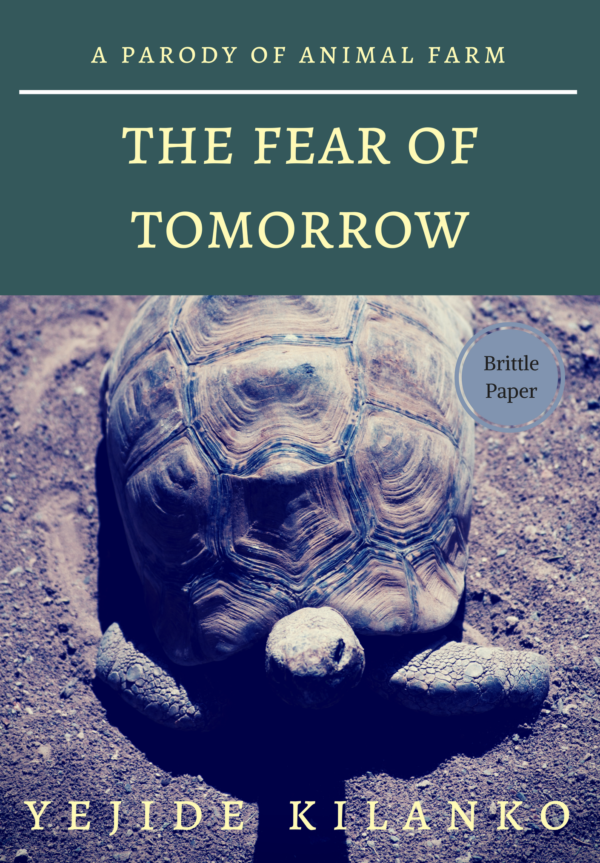
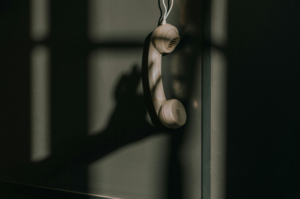
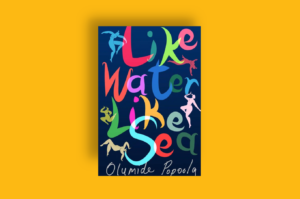
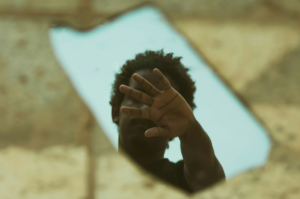
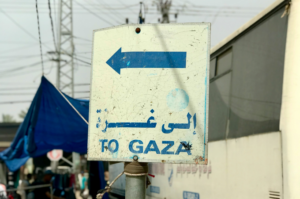
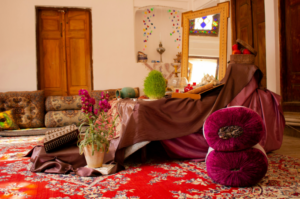
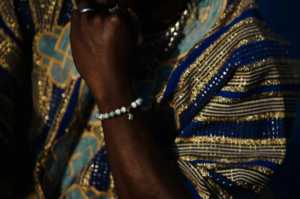

Interview with Nigerian author, Yejide Kilanko | The Republic August 25, 2023 11:22
[…] the season I’m living. I’m going to say, Animal Farm by George Orwell. I also enjoyed writing a parody inspired by the book. […]